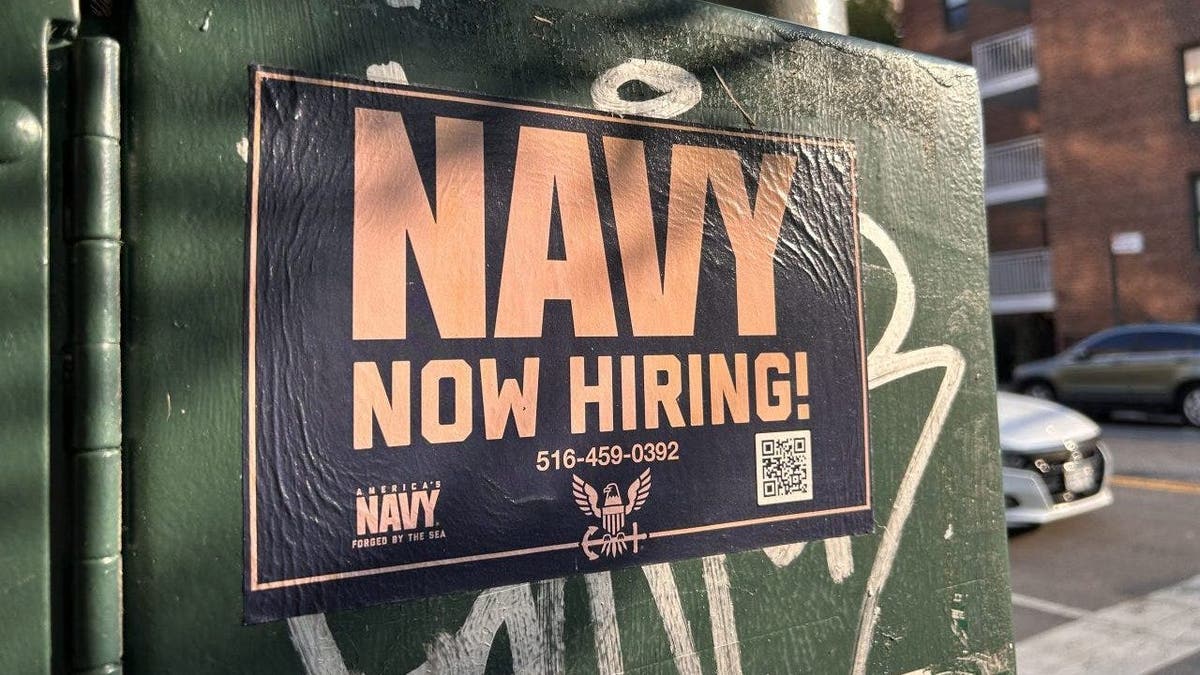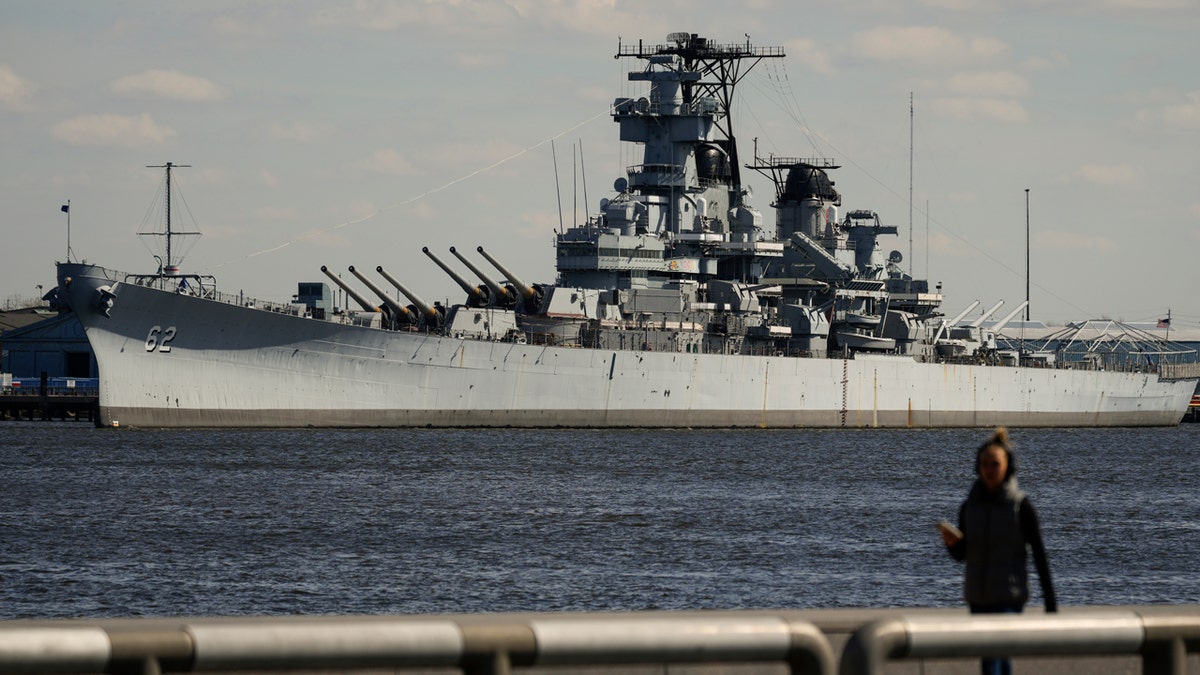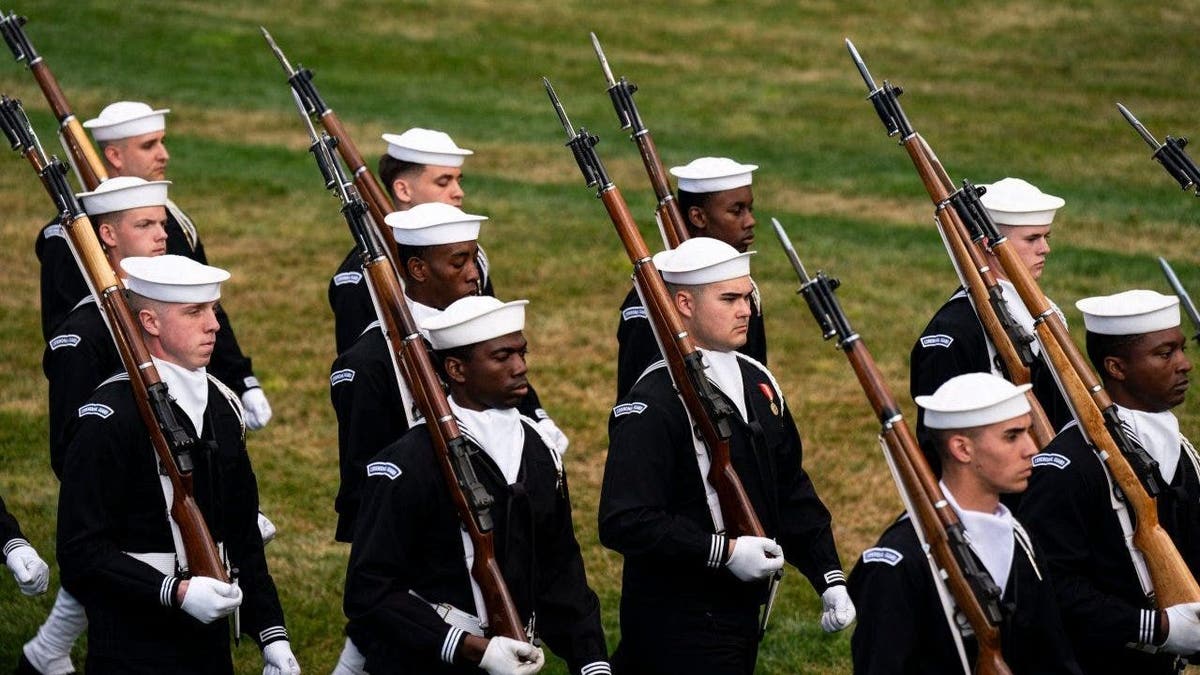Fox News Flash top headlines for April 15
Fox News Flash top headlines are here. Check out what's clicking on Foxnews.com.
The U.S. Army and Air Force are expected to reach their most recent recruitment goals, but the Navy seems like it will fall short.
Originally aiming for approximately 40,600 individuals onboarding in the current recruiting year, the U.S. Navy now says it is likely going to end up about 6,700 recruits short.
"We continue to face challenges in the current and forecasted economic environment and tough labor market," Vice Adm. Rick Cheeseman, head of Navy personnel, said.

NAVY Now Hiring sticker near urban housing project, Queens, New York. (Lindsey Nicholson/UCG/Universal Images Group via Getty Images)
He continued, "The Navy continues to explore and evaluate new methods for attracting qualified, motivated and capable applicants."
Adm. Lisa Franchetti, chief of naval operations, told Congress last week that the U.S. requires an additional 18,000 sailors for operations at sea, while an additional 4,000 are needed for roles on land.
The Navy has repeatedly lowered its requirements and removed barriers to access in order to bolster recruitment numbers.
NAVY MAKES SHOCKING AIRCRAFT CARRIER DECISION WHILE CHINA THREAT RISES

A person walks in Philadelphia across the Delaware River from the USS New Jersey in Camden, New Jersey.
Citizens without a high school diploma were made eligible to enlist earlier this year, as long as they got at least 50 out of 99 on the Armed Services Qualification Test.
Approximately six months remain in the recruiting year, but projections suggest there will remain a lack of manpower, resulting in staff shortages both on the waters and on shore.
The U.S. Navy is as crucial as ever internationally as tensions continue to escalate in regions such as the Pacific Ocean and the Middle East.
CLICK HERE TO GET THE FOX NEWS APP

Members of the U.S. Navy walk in formation at an arrival ceremony with U.S. President Joe Biden and Fumio Kishida, Japan's prime minister, not pictured, during a state visit on the South Lawn of the White House in Washington, D.C. (Al Drago/Bloomberg via Getty Images)
U.S. warships stationed in the Mediterranean have been crucial for continued security operations amid missile launches from Iran and attacks on commercial vessels by the Houthis.
Similarly, a U.S. naval presence in the seas of East Asia has served to deter the People's Republic of China from aggression against the disputed island territory of Taiwan.











































